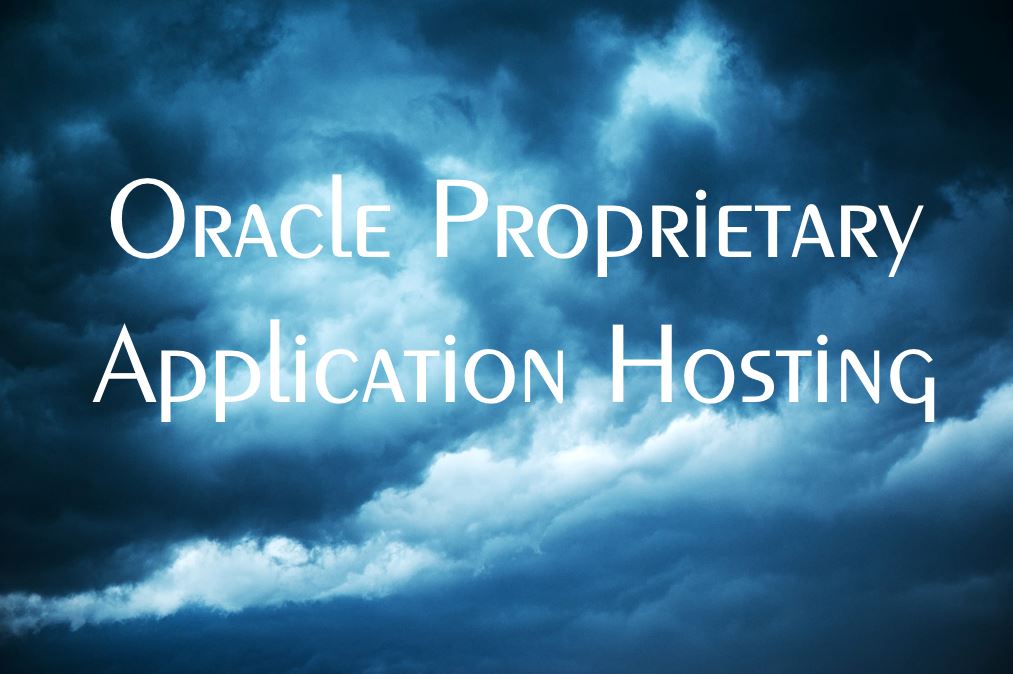Hosting Oracle Software Carries Risks

The software-as-a-service (SaaS) solution-delivery model is becoming more and more widespread. Developers of all kinds of software solutions – products covering everything from office productivity, design, accounting, CRM, business intelligence and more – increasingly are realizing that it is often more feasible and profitable to offer those solutions to customers via the Internet under a subscription model than it is to provide them as on-premise software for installation on customers’ computers. However, the SaaS model also carries risks, and among the principal sources of those risks are the license terms associated with third-party products used to deliver those solutions.
Some software publishers offer relatively flexible terms for using their products for commercial hosting purposes. Microsoft is a good example. Providers can license a wide array of Microsoft products under the Service Provider License Agreement (SPLA), which uses a monthly, pay-as-you-go reporting model that converts licensing expenditures from a capital expense to an operating expense. However, many businesses prefer to avoid the reporting burdens and risks associated with SPLA and to use perpetual licenses instead in support of their hosted solutions. Microsoft accommodates those customers by allowing certain server product licenses to be enrolled in Software Assurance to take advantage of the “Self-Hosted Applications” benefit. That benefit allows the licensed products to be used in connection with hosted “Unified Solutions” that are offered to customers. The Self-Hosted Applications option is attractive to many providers, because the perpetual licenses enrolled in Software Assurance may be repurposed at a later date without any approval from or notice to Microsoft if the decision is made to discontinue a hosted offering or to move it to a different platform.
Oracle’s approach to licensing for hosting purposes is different. Oracle also offers somewhat more limited, pay-as-you-go options that include monthly reporting and payment models, similar to SPLA. In addition, companies that prefer to stick with perpetual licensing also have an option with Oracle. However, unlike with Microsoft, those customers must complete a “Proprietary Application Hosting Registration Form,” which identifies the Oracle software to be licensed and describes in detail the hosted solution in connection with which that software will be used. The form is then attached to an Ordering Document under which those licenses are purchased, and the Ordering Document itself includes language allowing for the software to be used in connection with the registered solution. It is that language in the Ordering Document that is particularly problematic, because the standard form states that the licensed programs may only be used with the proprietary application identified on the Proprietary Application Hosting Registration Form. The Ordering Document does not describe any mechanism under which the licenses may be re-purposed to other deployments.
That language is risky. Currently, Oracle typically will work with licensees to amend the Ordering Document with a new Proprietary Application Hosting Registration Form (or, perhaps, no form), effectively re-registering the Oracle licenses for use in connection with other purposes. However, Oracle has no obligation under the Ordering Document to allow for such re-registration to occur – it is solely up to Oracle whether and to what extent it will amend the original Ordering Document. If Oracle refuses to play ball for any reason, then the potentially very expensive Oracle licenses the company purchased could be essentially valueless. That is substantial bargaining leverage that no company ever should want to hand over to any software vendor. Furthermore, any re-registration discussions would open the door to Oracle asking questions about how the software will be used going forward. In my experience, the less information a company provides to a software publisher, the better.
On the other hand, Oracle’s Proprietary Application Hosting model typically does not carry additional costs. Microsoft may have a less rigid process, but you end up paying for it in the form of Software Assurance renewals in order to use the Self-Hosted Applications benefit. Many of the most critical software-licensing decisions come down to a choice between cost and convenience, and this one is no different. However, all companies should work closely with their independent licensing consultants and legal counsel to ensure that they understand the risks and opportunities entailed in their licensing options before making any significant software investments.















